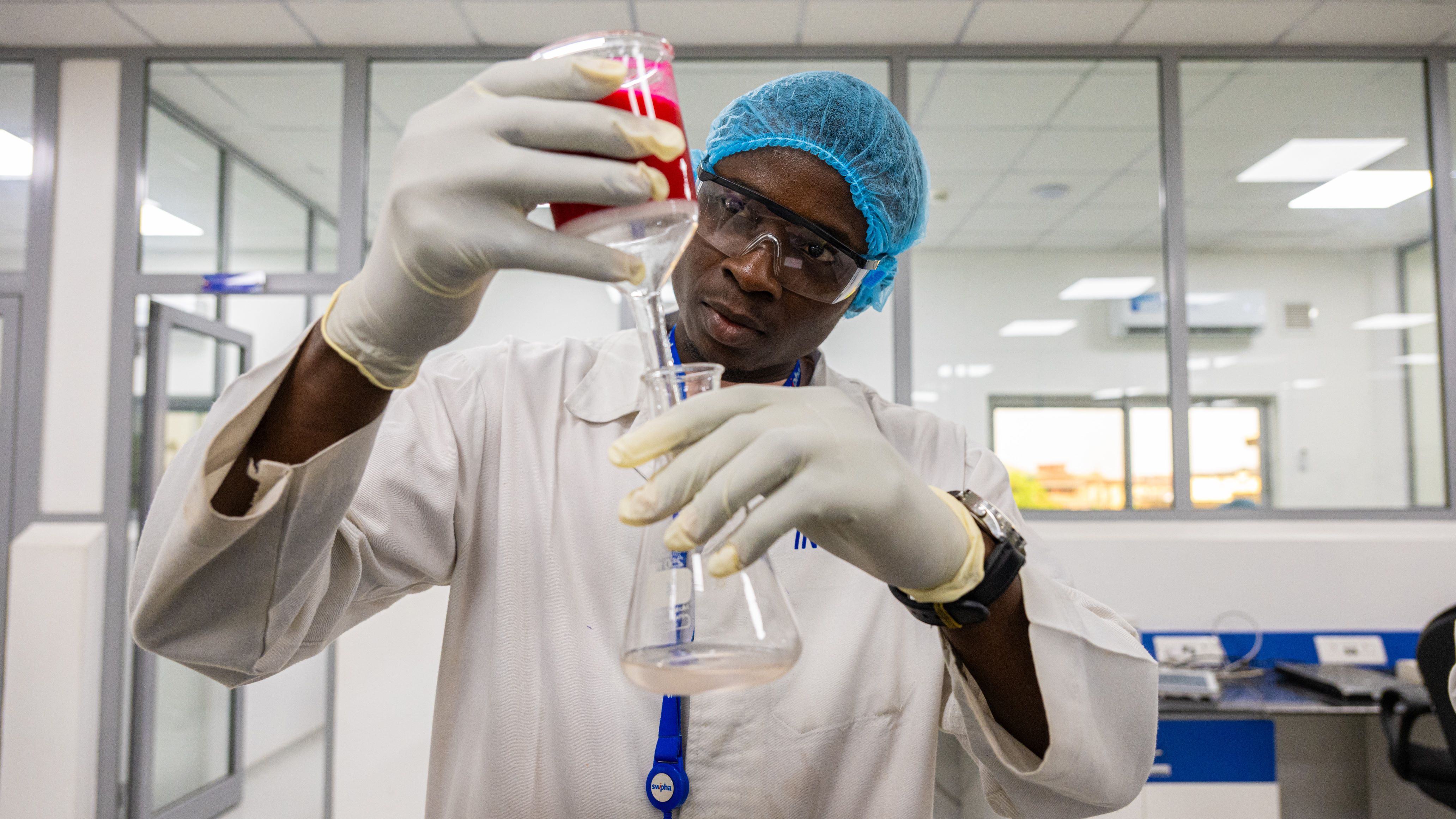Everyone has a right to affordable and quality assured health products, yet in many parts of the world there is no stable and affordable regional access to tests, treatments, and tools.
Everyone has a right to affordable and quality assured health products, yet in many parts of the world there is no stable and affordable regional access to tests, treatments, and tools.

95 %
More than 95% of the active pharmaceutical ingredients consumed in Africa are imported
70 %
More than 70% of all pharmaceuticals consumed in Africa are imported
1 /4
Africa shoulders one-quarter of the world’s disease burden, but is heavily reliant on external production of health products
5
Only five drug manufacturers in Africa have received WHO’s quality certification for any product
Africa has only about 600 health care production sites; India, by contrast, has 10,000 sites for a similar population. Challenges to increasing production capacity include the cost and complexity of achieving quality and regulatory compliance, poor access to finance, suboptimal infrastructure, and unpredictable public sector demand.
More than 70% of all pharmaceuticals consumed in Africa are imported, and most low- and middle-income countries do not have stable, affordable access to diagnostic tests, treatments and tools needed to prevent and respond to global health emergencies. That makes these countries more vulnerable to price volatility, supply-chain disruptions and unavailability of essential health products and tools.
On their own, very few countries can meet the minimum quantity for orders of health products at reduced bulk prices. This contributes to increasing the cost of pharmaceuticals needed at the country level.
